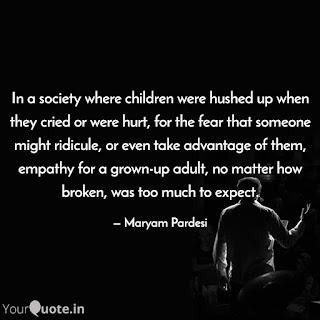The Simple Pleasure of Blinking
Yes, you read it right!
For how long have you been staring at the screen?
Do you remember the last time you blinked….consciously?
 |
| Photo by Author |
I think you just did!
Did you feel how much strain you had put on your eyes, a portion of which was relieved with this simple act?
Blink again, because it is the simplest, yet most wonderful of pleasures life offers to us!
Because it is one of the few luxuries we can still afford to have free of cost — inexpensive, and always at our disposal.
I call it a luxury because, well…look around you — the world is a beautiful, intricate combination of colours!
 |
| Photo by Rodrigo Curi on Unsplash |
In a recent Ophthalmology lecture, as we droned through the parts of the eye that create tears — the lacrimal system — I was amazed by how this simple system keeps such important mechanisms in check.
Let’s get some facts straight…
 |
| Photo by TeachMeAnatomy |
The major lacrimal gland is a small pouch that forms and contains tears. It lies in and around the upper eyelid on the temporal side (the one facing the forehead). At the nasal corner (the side facing the nose) of each eye is the nasolacrimal duct, which collects fluid draining across from the temporal side to the nasal side, into the nose. This is why your eyes water when your nose is runny and vice versa.
And what causes the stored fluid to be released? Blinking! Every time you blink, a microscopic amount of fluid is wrung out of the gland, and spread across to the other end by a micro-canal system. This maintains a layer of moisture, called the tear film, over the other outer parts important for vision, such as the cornea.
Drying out of this moisture layer causes dry eye — an irritable, often painful condition, that is now increasingly common due to increased screen usage. In addition to the damaging role of blue light, this effect is brought about in part due to our forgetfulness to blink when focused on a screen! (1)
 |
| Source: EverydayHealth |
Why it’s IMPORTANT!
While talking to patients who have had vision loss, or a vision impairment that cannot be improved, one theme has been overwhelmingly common. All of them would give anything to see like they used to.
“… Now do you not see that the eye embraces the beauty of the whole world? It is the lord of astronomy and the maker of cosmography; it counsels and corrects all the arts of mankind; it leads men to the different parts of the world; it is the prince of mathematics, and the sciences founded on it are absolutely certain. It has measured the distances and sizes of the stars; it has found the elements and their locations; it … has given birth to architecture, and to perspective, and to the divine art of painting. Oh excellent thing, superior to all others created by God!…What peoples, what tongues will fully describe your true function? The eye is the window of the human body through which it feels its way and enjoys the beauty of the world. Owing to the eye the soul is content to stay in its bodily prison, for without it such bodily prison is torture.”- Leonardo da Vinci (1452–1519)
 |
| Photo by Colin Lloyd on Unsplash |
The problem is, our eyes are only “just another body part” until they’re not. Until we lose them completely. They are only not a luxury until they really become so.
To be able to view the world in all its ordinary and subtle, as well as extraordinary levels of beauty, is a most invaluable gift — something that we do not cherish as much as we should.
Let us all pledge to take better care of our eyes, because what’s gone is gone. The eye is one of the most difficult organs to treat or recover completely.
By making tiny additions to our daily routines, that are not a tedious job at all, we can preserve our gateways to the world. All it requires is a strong resolve. These are some simple practices you can try:
- Keep your thumb or finger some distance from your nose and focus on it for 15 to 20 seconds
- Close your eyes and move your eyeballs in clockwise or anticlockwise direction 8 to 10 times. Then do the same with your eyes open.
- Sunbathe your eyes, because they were not made to stare at blue light all the time. Let your eyes water under the sun's energy for a few seconds, and feel the difference.
- Massage lightly around them. This helps improve circulation and release strain, and might even improve dark circles if they're not a chronic problem for you.
- Make the figure 8 some distance on the floor in your free time, first in one direction, then in the other. This helps improve focus. (2)
- Remember the 20-20-20 rule. After every 20 mins of screen time, focus on a target 20 feet in the distance for 20 seconds. This can be difficult to remember when engrossed in work, but will be beneficial in the long run! (2)
And of course, don’t forget to blink!
Because it doesn’t cost us anything.
And because we are blessed enough to be able to.
“There is no better way to thank God for your sight than by giving a helping hand to someone in the dark.”- Helen Keller

